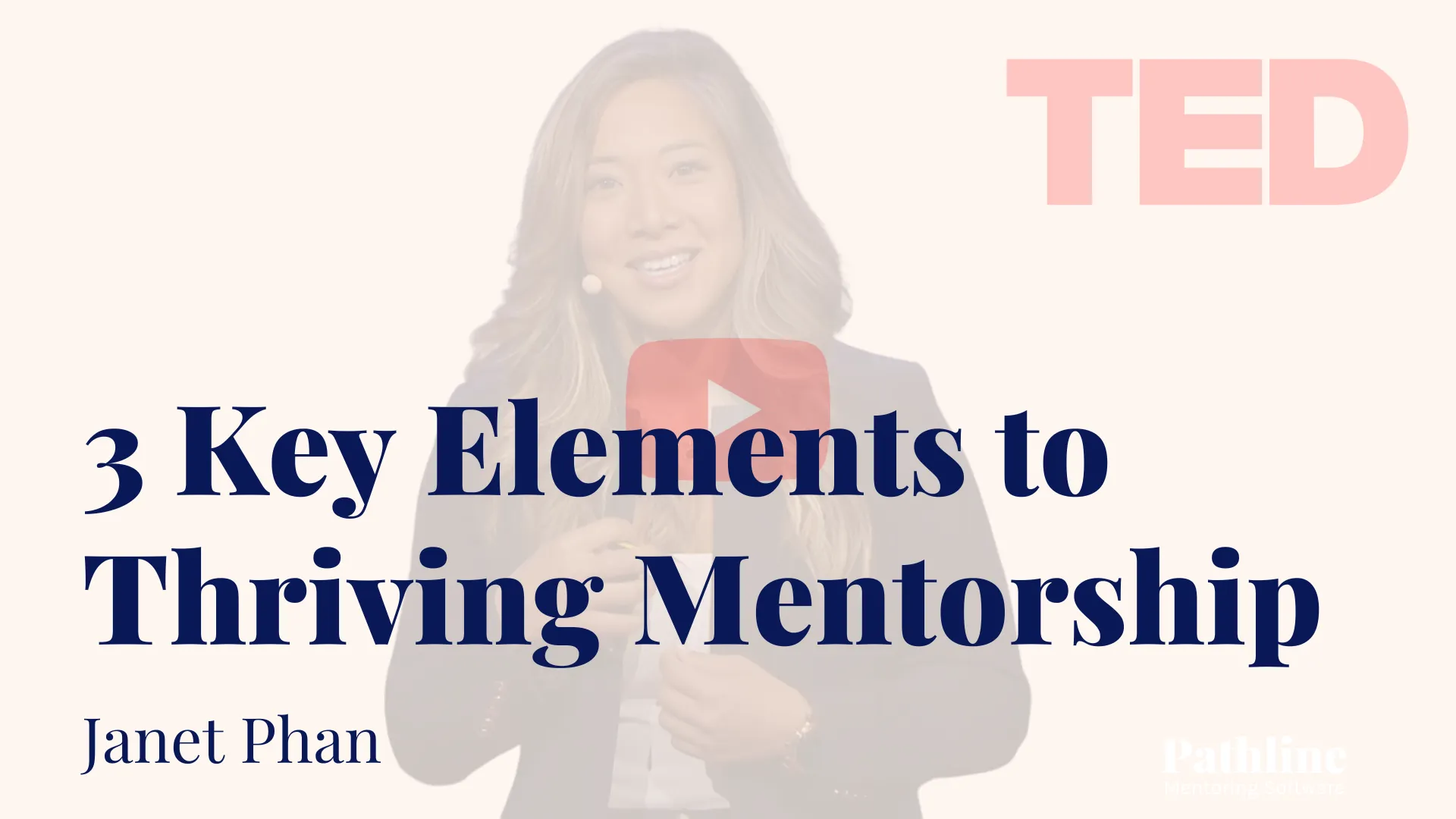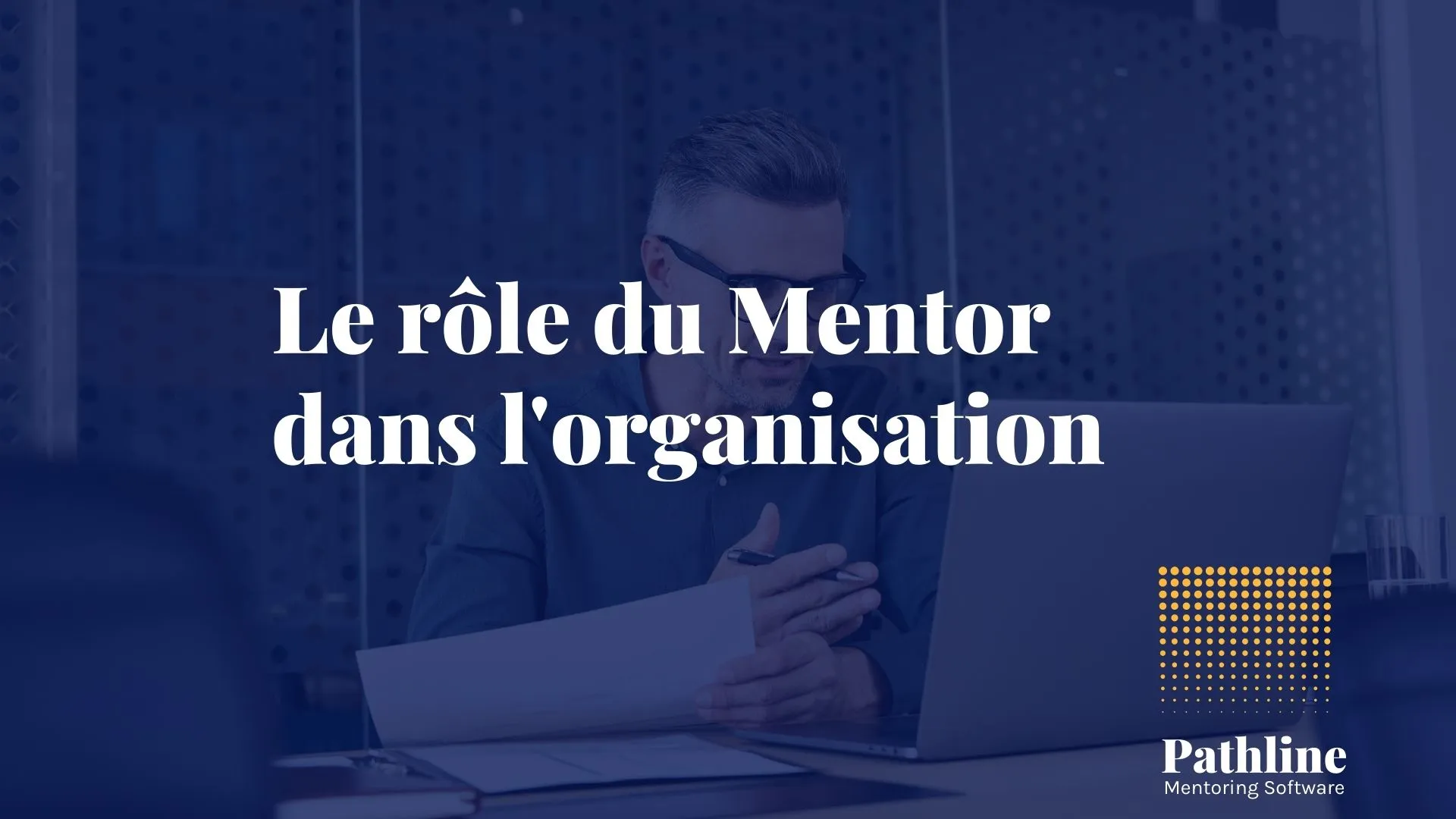This Guide is also available for download in PDF format:
- In French via this link
- In English via this one
Enjoy your reading!
Introduction
Corporate mentoring is based on an interpersonal relationship of support, exchange and learning between a mentor and a mentee. The mentor is an experienced person, willing to share his or her knowledge and know-how through this activity. The mentee, in turn, benefits from this expertise to accelerate his or her personal and professional development.
The purpose of this charter is to define the commitments and responsibilities of each party, to ensure that the mentoring relationship runs smoothly within the company.
Should you have any queries during the program over the coming months, the Mentorline team is at your disposal at contact@pathline.fr.
Let's get started!
Contents
- The specifics of the Mentor/Mentee relationship.
- Mutual commitments in mentoring
- Commitment of the parties.
- Using the Mentorline solution
The specifics of the Mentor/Mentee relationship

In our mentoring program, we emphasize that the mentor-mentee relationship must be independent of any hierarchical or functional relationship. This fosters an environment of trust and openness where the mentee can feel free to discuss his or her challenges, ideas and ambitions without fear of judgment or repercussions. In addition, it will enable advice and support to be offered without conflict of interest or bias.
As a mentor, it's important to respect this independence and maintain a professional, respectful relationship. The risk is to fall into authority. There is no hierarchical relationship between Mentor and Mentee, only listening and support.
A strictly confidential relationship
Confidentiality is absolutely essential to enable mentees to feel free to share their ideas, concerns, challenges, failures and successes without fearing that this information will be used against them or become public. Confidentiality also covers the privacy of both mentor and mentee. Some topics of discussion may be personal or sensitive.
The mentor should alert the mentee when the conversation enters the realm of privacy, and ask for the mentee's explicit consent before proceeding.
A mentoring relationship based on confidentiality will encourage the mentee to take more risks in learning and experimenting, knowing that mistakes or failures will not be exposed to others.

Mentor's roles and responsibilities
- Confidentiality: Respect the strict confidentiality of exchanges with the mentee.
- Personal commitment: Actively participate in program-related sessions, training and meetings.
- Active listening: Pay close attention and provide honest, constructive feedback.
- Focus on objectives: Focus the exchange specifically on results and objectives.
- Network opening: Make your network available by offering introductions.
- Collaboration with human resources: Involve HR when necessary.

The Mentee's roles and responsibilities
- Responsibility for progress: Mentees are responsible for their own learning. They must be fully involved in mentoring sessions and put into practice the recommendations they receive.
- Put advice into practice: Apply recommendations and lessons learned.
- Define your goals : Clearly identify your personal and professional development objectives.
- Prepare the sessions: Develop questions and discussion topics before each meeting to make the most of mentoring sessions by being engaged and active.
- Remain open to learning: Be humble and receptive to advice.
- Respect the organization's values: Adhere to the company's values and ethics.
- Ask for feedback: Solicit constructive feedback from the mentor.
- Participate actively in the program: Get involved in mentoring program activities (training, events, meetings, etc.).
- Respect the mentor's time: Be punctual and respect the time allotted by the mentor.
- Provide feedback: Give constructive feedback to the mentor to improve the relationship.

Human Resources commitment
The HR department works closely with other members of management to define the objectives and needs of the mentoring program, and to implement it effectively. Throughout the process, the HR department monitors the program's progress.
- Guideline development: Creation of rules and guidelines tailored to the company's needs.
- Mentor recruitment: Identification and selection of qualified mentors for the program.
- Mentor training: Planning and implementation of training courses for mentors, if required.
- Support for mentors and mentees: advice and assistance throughout the program.
- Evaluation and improvement: Analysis of the mentoring process and implementation of improvement measures.
- Confidentiality: Strict confidentiality of exchanges between mentors and mentees.
By mutual agreement

Under no circumstances can the Mentor accompany a person who does not wish to be accompanied. The full agreement of the person to whom mentoring is proposed by his or her leader or HR is therefore mandatory. At the first meeting, the Mentor checks that the person referred to him or her is willing to be mentored, and that he or she is familiar with the process via the mentoring commitment and charter.
The mentor is also free to refuse a new mentoring program. The Mentor and the Mentee can exercise their "right of withdrawal" at any time and stop the mentoring process. If this is initiated by the Mentor, he or she must propose an alternative solution to the Mentee.
The Mentorline platform

The Mentorline platform has been designed to ensure the success of mentoring programs. It engages each participant in productive sessions and ensures end-to-end management of the program.
Sessions
Mentors and Mentees taking part in the program benefit from tools to enrich their support, including the drafting of reports and action plans, and the sharing of resources.
Mentoring process
The platform is customized to suit users' needs. Administrators can customize :
- Program theme (Example: Talent / Inclusion)
- Program objectives
- Participation criteria
- The accompanying format
- Platform language
Respecting confidentiality
Participants are assured of the confidentiality of the mentoring process. Platform administrators will never have access to notes or documents shared during a mentoring session.
Personal data protection
The platform is designed according to RGPD standards, respecting data confidentiality thanks to strict security protocols. Data is hosted and processed in France to prevent any foreign jurisdiction from having a right of oversight.
Control
Administrators can follow the progress of accompaniments without ever having access to the notes or documents exchanged:
- Keeping track of session dates
- Carrying out sessions
- Absences
- Defined objectives
- Objectives achieved
- Program completion







.png)

.webp)

.webp)
.webp)




